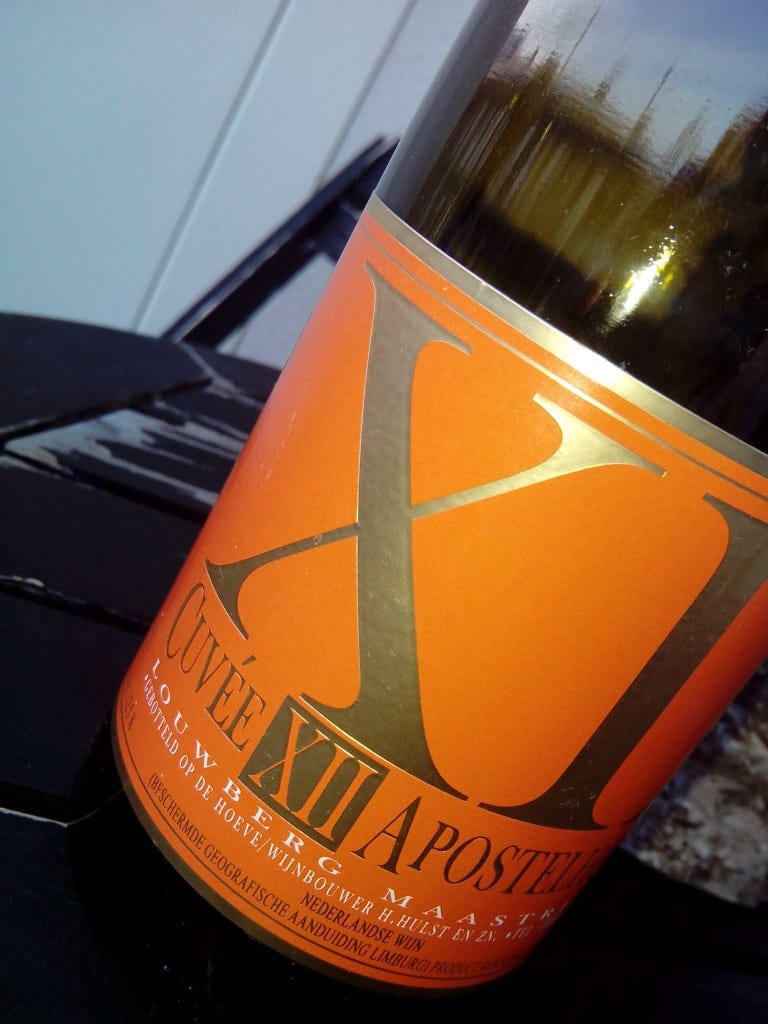Going Dutch - Apostelhoeve Cuvée XII

There isn't much that the Dutch don't grow - a glance at my weekly vegetable box reveals a predominance of homegrown produce. And no, I don't mean something you can smoke.
In the five months since I moved to Amsterdam, I've eaten Tomatoes, Carrots, Leeks, Peppers, Kohlrabi, Aubergines, Apples, Strawberries, very fine cheeses and cooked meats, organically farmed lamb and beef, all of which were produced inside the Netherland's modest borders. But until yesterday, I hadn't tasted a Dutch wine.
"The Dutch make wine?" I hear you cry incredulously. Yes they do, and have done since the 1970s, albeit in miniscule quantities. The climate is marginal - not dissimilar to the UK, but the regions of Gelderland and Limburg (bordering Belgium) get just enough sun to be able to ripen some white varieties. According to wikipedia, a number of red varieties are also permitted for Dutch quality wine, but I have to say I'm not in a hurry to try Pinot Noir or St. Laurent from these climes.
Apostelhoeve is a …
Keep reading with a 7-day free trial
Subscribe to The Morning Claret to keep reading this post and get 7 days of free access to the full post archives.




